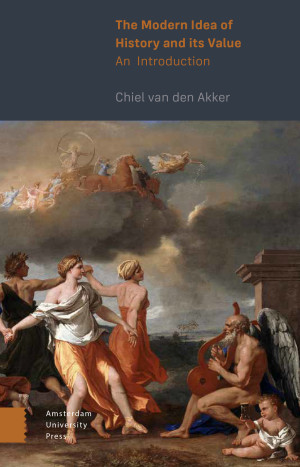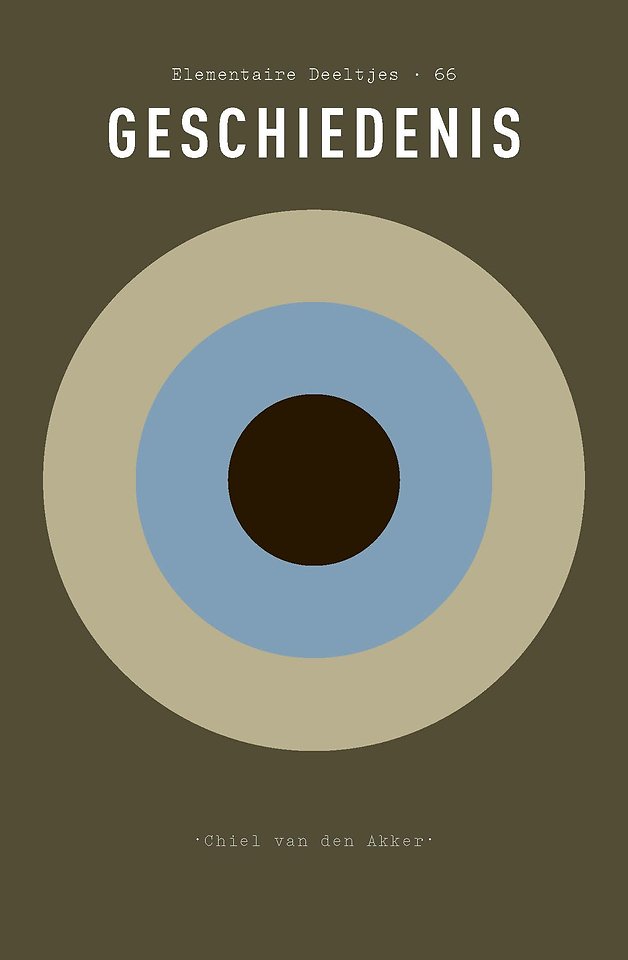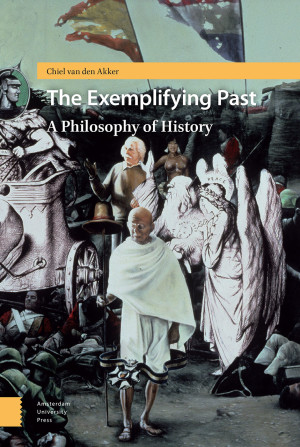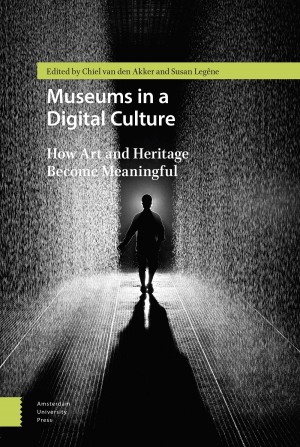Chiel van den Akker is Associate Professor Historical Theory/Philosophy of History at the Department of Art and Culture, History and Antiquities. He is the author of Knowledge and Narrative (2025), The Modern Idea of History and its Value (2020), and The Exemplifying Past. A Philosophy of History (2018).
His interests are in German Idealism, narrative as a mode of knowing, historical judgment, and the neo-pragmatists. He received his Ph.D in Philosophy from Radboud University Nijmegen in 2009. There he also graduated cum laude in History. Currently, he is working on a monograph on Hegel's philosophy of history.
Hij is lid van het Meesterschapsteam Vakdidactiek Geschiedenis.
He is Editor-in-Chief of the Journal of the Philosophy of History (JPH).
Selected Publications:
- Knowledge and Narrative, Cambridge: CUP, 2025.
- The Exemplifying Past. A Philosophy of History, Amsterdam: AUP, 2018. Routledge: New York, 2025.
- Heroism, Self-determination, and Magnanimity: Hegel and Brandom on Self-conscious Agency, in Ethics and Time in the Philosophy of History: A Cross-Cultural Approach. Gilbert, B. & Elgabsi, N. (eds.). Bloomsburry, 2023, 105-121.
- The Modern Idea of History and its Value. An Introduction, Amsterdam: AUP, 2020.
- Mink's Riddle of Narrative Truth, Journal of the Philosophy of History, 7(3) 2013: 346-370.
Knowledge and Narrative, Cambridge: CUP, 2025.
This Element is concerned with narrative as a mode of knowing. As such it draws attention to the epistemic value of historical narrative qua narrative. This it does not only in an abstract sense, but also with the help of recent works of history. Special attention is given to narrative sentences and narrative theses. A narrative thesis redescribes the actions and events the historian is concerned with and allows for the temporal whole or unity we associate with narrative, with its beginning, middle, and end. A thesis, it is argued, is indispensable and qualifies the work of historians as narrative.
The concern with narrative has not lost any of its relevance, for the simple reason that it informs us about history as an academic discipline and the knowledge it produces. For as long as historians decide what events are important in their past and for what reason, they will rely on narrative.

The Routlegde Companion to Historical Theory, ed., London and New York: Routledge, 2022
This Companion provides a wide-ranging and up-to-date overview of the conceptual issues that history as a discipline and mode of thought gives rise to.
The book offers both historical and systematic treatments of these issues, as well as addressing their contemporary relevance. Structured in three parts – Modes and Schools of Historical Thought, Epistemology and Metaphysics of History, and Issues and Challenges in Historical Theory – it offers the reader a wide scope and expert treatment of each topic in this vibrant field that can be read in any order. An international team of experts both discuss the basis of their topic and present their own view, offering the reader a cutting-edge contribution while ensuring their chapters are of interest to both students and specialists in the field of historical theory and engaging with the very nature of historical thought, the metaphysics of historical existence, the politics of history-writing, and the intelligibility of the historical process.
The volume is an indispensable companion to the study of history and essential reading for anyone interested in the reflection on the nature of history and our historical existence.

The Modern Idea of History and its Value. An Introduction, 2020
This is an original and accessible introduction to the modern idea of history and its value, and an indispensable companion to the study of history and its philosophical underpinnings.
The book answers two basic questions: What is history? And what is its value? It also shows how the answers to these questions are mutually dependent. The old view that history is the teacher of life, for instance, assumes that the past is a reservoir of examples from which moral lessons for the present can be drawn.
The subjects discussed include history as the teacher of life, the need for truth and objectivity, the moral standards of the historian, realism and the value of historical insight, historical explanation and understanding, the intelligibility of the historical process, the tragedy of history, the politics of history-writing, and the close connection between history, narrative, and the desire for justice.
These topics are discussed with the help of inspiring and influential historians and philosophers such as Thucydides, Ranke, Hegel, Nietzsche, Collingwood, Arendt, White, Hunt, and Ankersmit.

Geschiedenis - Elementaire Deeltje, 2019
In het Elementaire Deeltje Geschiedenis maakt Chiel van den Akker duidelijk wat iedereen over geschiedenis zou moeten weten. Dit doet hij in zeven thema's aan de hand van een select gezelschap van invloedrijke denkers. Leidraad is de vraag: waar hebben we geschiedenis eigenlijk voor nodig?

The Exemplifying Past. A Philosophy of History, Amsterdam: AUP, 2018.
This book addresses a wide range of philosophical problems about history and the semantics of time. The point of departure is the distinction between events under the description of past witnesses and their contemporaries and events under the description of historians. Its main claim is that a thesis on the past is exemplified rather than being justified by the available evidence. Such thesis, the book argues, retroactively becomes concrete in the past under consideration. This book will not only appeal to philosophers and historians, but to students and scholars across the humanities.

Museums in a Digital Culture. How Art and Heritage Become Meaningful, ed. with Susan Legne, Amsterdam: AUP, 2016
The experience of engaging with art and history has been utterly transformed by information and communications technology in recent decades. We now have virtual, mediated access to countless heritage collections and assemblages of artworks, which we intuitively browse and navigate in a way that wasn't possible until very recently. This collection of essays takes up the question of the cultural meaning of the information and communications technology that makes these new engagements possible, asking questions like: How should we theorise the sensory experience of art and heritage? What does information technology mean for the authority and ownership of heritage?
